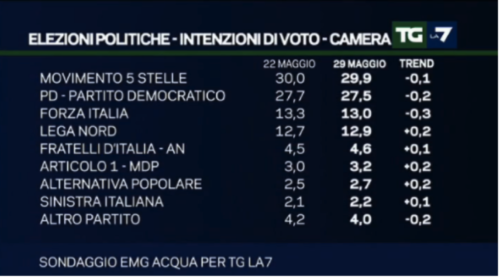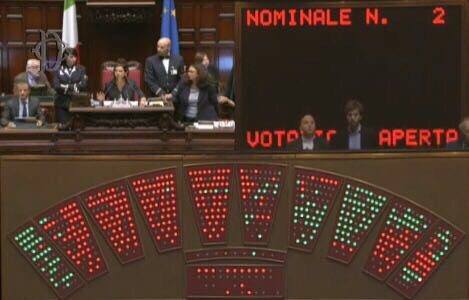Much Ado About Nothing
Political maneuvers end up in uncertainty in Italian and British Parliaments
In 2017 France, the Netherlands, Germany, the UK, Malta and Austria had or will have general elections. This has been regarded as a positive reinforcement of a new Franco-German axis which quite possibly will play an even bigger role after the UK’s departure from the European Union. For a while, this electoral fest seemed to be joined by another big player: Italy.
Paolo Gentiloni’s government, which took office following the defeat of Matteo Renzi’s constitutional referendum, has a mandate until the spring 2018. But, following an acceleration on the talks on the new electoral law, it could have seen its end around the fall of 2017.
This acceleration was brought by former Prime Minister Silvio Berlusconi, who approached Renzi (newly re-elected secretary of the Democratic Party) with a proposal for an electoral law based on the current German one. The meeting was successful and Renzi was open to the idea. Soon after, Beppe Grillo’s Five Star Movement and Matteo Salvini’s Northern League party joined the discussion table. They reached a fast compromise on a proportional model with a threshold at 5% from the current 3%.

Recent poll by TG LA7
It meant that only the 4 biggest parties would enter (accounting for over 80% of the votes) but, more importantly it will leave out many smaller parties that are now represented in parliament, like the former democrats of “Articolo 1” or even part of the current government like Angelino Alfano’s “NCD”.
The deal seemed to be proceeding well and to be on track of being approved by both chambers by the beginning of July, which made possible to organize general elections by the end of September.

“Secret” vote
All this process came to an abrupt stop on June 8th. A technical error made possible to see the result of a secret vote on an amendment that wasn’t supposed to pass. The screen showed that the Five Star Movement voted united against the will of the coalition they were part of and, subsequently, have been accused of wanting to tank the agreement. Grillo’s party retorted that the coalition should have had the numbers to block it anyway. But, by then, the game was over. During the next few days, all talks of a new electoral law collapsed along with the prospect of a new parliament and government this year.
The same day, in the United Kingdom, May’s debacle was taking shape. What was supposed to be a vote to give her a strong and stable government, became the resurrection of the Labour party and resulted in a hung Parliament. Now Brexit talks awaits the Prime Minister, which will put a strain on the fragile coalition and may result in another general election soon.
So what was shaping up to be the new 2017 alignment of new and renewed governments in all the major European countries, will have to wait for 2018 or more, if UK’s new coalition holds on to power.

Projected seats – Le Monde
In stark contrast to the political instability of their neighbors, Emmanuel Macron’s party is projected to have a landslide victory in parliament on the final round of the French elections, with an assured majority well over the 289 seats needed to govern and will give him a steady hand in the challenging times ahead and in his campaign promises of reform, both in France and in Brussels. The actions of his government will surely affect the results of future elections in the continent. If he is unable to deliver on his promises, populism of both left and right could see a resurge but, for now, the wave seemed to have stopped at US President Donald Trump’s election. Further confirmation of this could be found in the last local elections in Italy, where the Five Star Movement saw its first real defeat as it was unable to bring any of its candidates to the second round in any of the big cities up for grab.
